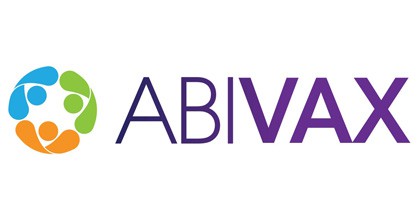 French biotech Abivax has new data for its HIV drug candidate ABX464 that suggest it may suppress latent HIV in reservoirs – raising hopes that it could help achieve long-term remission from the infection.
French biotech Abivax has new data for its HIV drug candidate ABX464 that suggest it may suppress latent HIV in reservoirs – raising hopes that it could help achieve long-term remission from the infection.
Various trials of aggressive antiretroviral therapy (ART) have attempted to eradicate HIV from the body in patients infected with the virus, but so far have been stymied by HIV’s tendency to hide in tissues in a dormant state that protects it from drugs. That means that despite enormous advances in drug treatment people with HIV are consigned to lifelong treatment to keep the virus in check.
Finding a functional cure for HIV infection that could free patients from the need for chronic therapy is one of the primary objectives for Paris-based Abivax, and it now has the first data from a phase IIa trial showing that ABX464 is able to suppress the virus in the gut as well as peripheral blood.
The trial is small, with just nine patients in a first safety-focused stage using a 150mg dose of the drug and 12 assessed with a lower 50mg daily dose over three months, and the data are mixed and preliminary. Nevertheless, the early signs are “encouraging”, according to Goetz Partners analyst Chris Redhead, who has an outperform rating on Abivax. A full read-out from the study will likely take place before the end of the year, he notes.
In the 150mg treatment phase, ABX464 was able to reduce HIV DNA in peripheral blood CD4 cells – the main type infected by HIV – by up to 52% in eight of the nine patients who received the drug over 28 days.
Eight of 12 patients completed the second phase of the trial with ABX464 given at a 50mg dose for three months , and out of these four showed reductions in peripheral blood HIV of between 2% and 85%, while four saw an increase ranging from 5% to 36%.
Patients also underwent rectal biopsies to see if the drug could seek out virus hiding in tissues, and on this measure the results were also split, with four patients showing reductions of between 16% to 71% and four an increase of 14% to 123%.
Prof Ian McGowan of the University of Pittsburgh School of Medicine, who is chair of Abivax’ scientific advisory board, said the results “demonstrate that some HIV-infected patients receiving 50mg of ABX464 had a relevant drop in the HIV DNA reservoir.”
“Further studies will identify the characteristics of the patients most likely to benefit from ABX464 in different dosing regimens, alone or in combination with other HIV cure strategies,” he added. The results will be presented at the AIDS 2018 conference in Amsterdam later this month.
Redhead said in a research note that although patient responses were lower than in the first cohort…using a third of the dose this second cohort does indicate that the drug is effective and well tolerated when used over a longer time period.”
The preliminary data suggest the trial “should form a strong platform for movement into a phase IIb study.”
The Goetz analyst says that ABX464’s double whammy of antiviral and anti-inflammatory effects could be another plus for the drug, as inflammation is “a significant problem in HIV patients.” Those anti-inflammatory properties have encouraged Abivax to carry out a phase 2a trial of the drug in ulcerative colitis, with results expected in September.
Other companies are also pursuing eradication strategies for HIV, including Gilead Sciences which reported encouraging data from an animal study earlier this year indicating that a two-drug regimen was able to suppress HIV for several months after treatment was discontinued.
Merck & Co/MSD and GlaxoSmithKline are backing an academic-led study, called RIVER, that is trying to attack HIV reservoirs using an approach known as ‘kick and kill’ – waking the latent cells using Merck’s HDAC inhibitor Zolinza (vorinostat) so that they become vulnerable to ART. The results of RIVER are also due to be presented at AIDS2018.
Meanwhile, Novartis and Genentech are collaborating on the ACTIVATE trial that combines the former’s HDAC inhibitor Farydak (panobinostat) with Genentech’s Pegasys (pegylated interferon-alpha2a), which could also generate results later this year. In this case Farydak is being used to activate the latent HIV and Pegasys is designed to stimulate immune-mediated elimination of HIV-infected cells.




